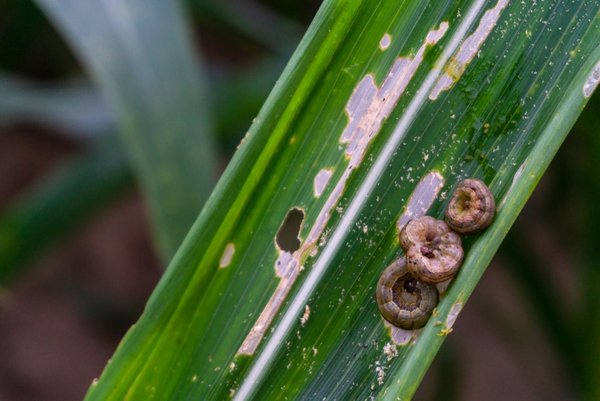 Read this article in French
Read this article in French- Share this article
- Subscribe to our newsletter
CIMMYT announces fall armyworm-tolerant maize hybrids for Africa
After three years of intensive research and trials conducted in Kenya, CIMMYT – the International Maize and Wheat Improvement Center – succeeded in developing fall armyworm-tolerant maize hybrids, which is a significant advance in the global fight against this vermin.
Fall armyworm (Spodoptera frugiperda) emerged as a serious threat to maize production in Africa in 2016 before spreading to Asia in 2018. Host-plant resistance is an important component of integrated pest management (IPM). By leveraging tropical insect-resistant maize germplasm developed in Mexico, coupled with elite stress-resilient maize germplasm developed in sub-Saharan Africa, CIMMYT worked intensively over the past three years to identify and validate sources of native genetic resistance to fall armyworm in Africa. This included screening over 3,500 hybrids in 2018 and 2019.
Based on the results of on-station screenhouse trials for fall armyworm tolerance (under artificial infestation) conducted at Kiboko in Kenya during 2017-2019, CIMMYT researchers evaluated in 2020 a set of eight test hybrids (four early-maturing and four intermediate-maturing) against four widely used commercial hybrids (two early- and two intermediate-maturing) as checks.
The eight test entries with fall armyworm tolerance were also included in the regional on-station trials (comprising a total of 58 entries) evaluated at 28 locations in Kenya and Tanzania. The purpose of these regional trials was to collect data on agronomic performance.
Native genetic resistance to fall armyworm in maize is partial, though quite significant in terms of yield protection under severe fall armyworm infestation, as compared to the susceptible commercial checks. The CIMMYT researchers suggest that sustainable control of fall armyworm could be best achieved when farmers use host-plant resistance in combination with other components of integrated pest management, including good agronomic management, biological control and environmentally safer pesticides.
Next Steps
Together with national agricultural research system (NARS) partners, CIMMYT will nominate these FAWTH hybrids for varietal release in target countries in sub-Saharan Africa, especially in eastern and southern Africa. After national performance trials (NPTs) and varietal release and registration, the hybrids will be sublicensed to seed company partners on a non-exclusive, royalty-free basis for accelerated seed scaling and deployment for the benefit of farming communities.
(CIMMYT/wi)
For more information please visit the CIMMYT website





Add a comment
Be the First to Comment